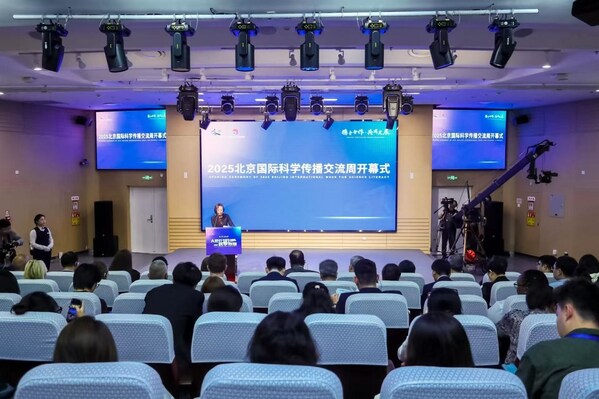Science
Beijing International Week for Science Literacy Highlights AI’s Role

The 2025 Beijing International Week for Science Literacy concluded on September 20 at the Beijing Science Center, emphasizing the theme “Science Communication in the Age of AI.” The five-day event, which ran from September 16 to 20, focused on the role of artificial intelligence in enhancing science outreach and fostering global collaboration.
During the opening ceremony, notable figures from various scientific communities addressed the audience. Among them were Li Xin, Executive Vice President of the Beijing Association for Science and Technology (BAST); Shahbaz Khan, Director of the UNESCO Regional Office for East Asia; Guo Zhe, Director of the China Science and Technology Museum; and Lazzat Kussainova, Chairperson and Chief Researcher of the Kazakhstan-based International Centre of Scientific Collaborations. Their speeches highlighted the importance of AI in addressing societal challenges and enhancing public engagement with science.
A key moment of the ceremony was the presentation of certificates to new members of the Beijing Global Network of Science Festivals by Su Guomin, Vice President of BAST and Secretary-General of the network. The event attracted nearly two dozen representatives from science festival committees, science centers, and museums across 14 countries, including Thailand, South Africa, and Norway. Additionally, over 200 participants from various regions of China, including Beijing, Shanghai, and Anhui, took part, representing directors of science and technology museums as well as researchers and university faculty.
Throughout the week, international experts led discussions on immersive science education practices. The event featured a multinational exhibition zone, showcasing interactive displays that highlighted innovative approaches to public engagement in science. Participants had the opportunity to explore new methodologies that utilize AI to communicate scientific ideas effectively.
Youth-oriented workshops, organized in collaboration with global institutions, provided hands-on activities aimed at inspiring the next generation of innovators. These workshops encouraged young people to engage with scientific concepts actively and creatively, ensuring that the future of science communication remains vibrant and inclusive.
The Beijing International Week for Science Literacy not only served as a platform for sharing knowledge and best practices but also underscored the critical role of technology in shaping the future of science communication. As nations continue to face complex challenges, the insights gained during this event will be crucial in fostering a deeper understanding of science among the public and enhancing collaborative efforts worldwide.
-

 Business5 months ago
Business5 months agoKenvue Dismisses CEO Thibaut Mongon as Strategic Review Advances
-

 Lifestyle4 months ago
Lifestyle4 months agoHumanism Camp Engages 250 Youths in Summer Fest 2025
-

 Sports4 months ago
Sports4 months agoDe Minaur Triumphs at Washington Open After Thrilling Comeback
-

 Sports5 months ago
Sports5 months agoTupou and Daugunu Join First Nations Squad for Lions Clash
-

 Top Stories5 months ago
Top Stories5 months agoColombian Senator Miguel Uribe Shows Signs of Recovery After Attack
-

 World5 months ago
World5 months agoASEAN Gears Up for Historic Joint Meeting of Foreign and Economic Ministers
-

 Health4 months ago
Health4 months agoNew Study Challenges Assumptions About Aging and Inflammation
-

 Business5 months ago
Business5 months agoOil Prices Surge Following New EU Sanctions on Russia
-

 Entertainment4 months ago
Entertainment4 months agoDetaşe-Sabah Violin Ensemble Captivates at Gabala Music Festival
-

 Entertainment4 months ago
Entertainment4 months agoBaku Metro Extends Hours for Justin Timberlake Concert
-

 Top Stories5 months ago
Top Stories5 months agoRethinking Singapore’s F&B Regulations Amid Business Closures
-

 Business5 months ago
Business5 months agoU.S. House Approves Stablecoin Bill, Sends to Trump for Signature









